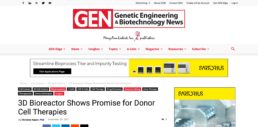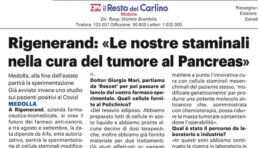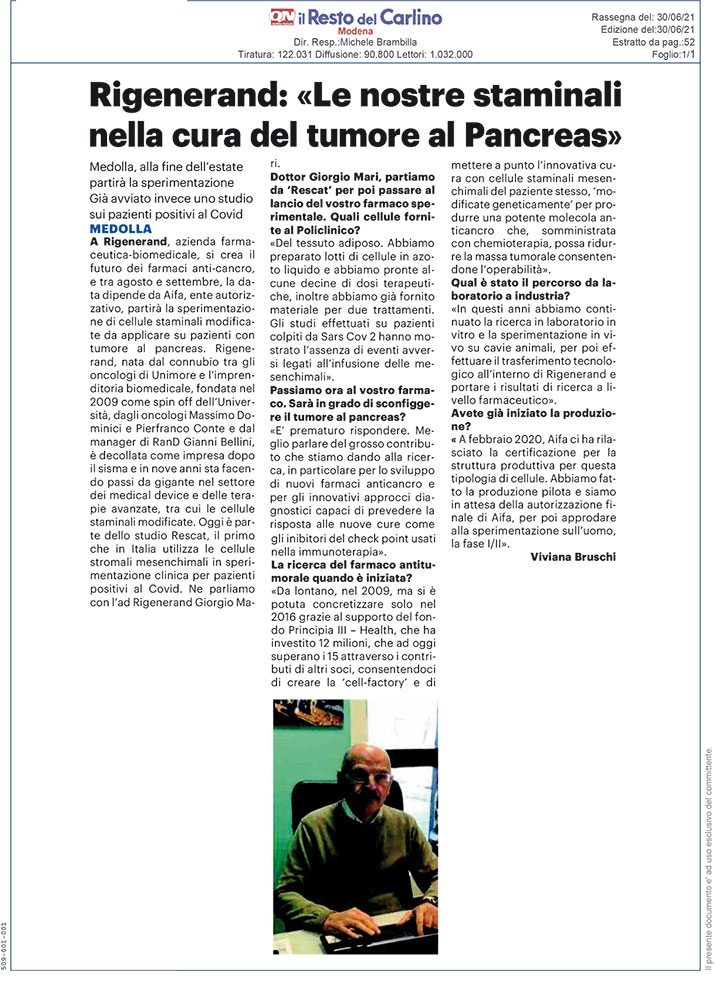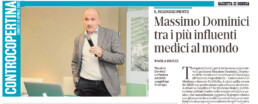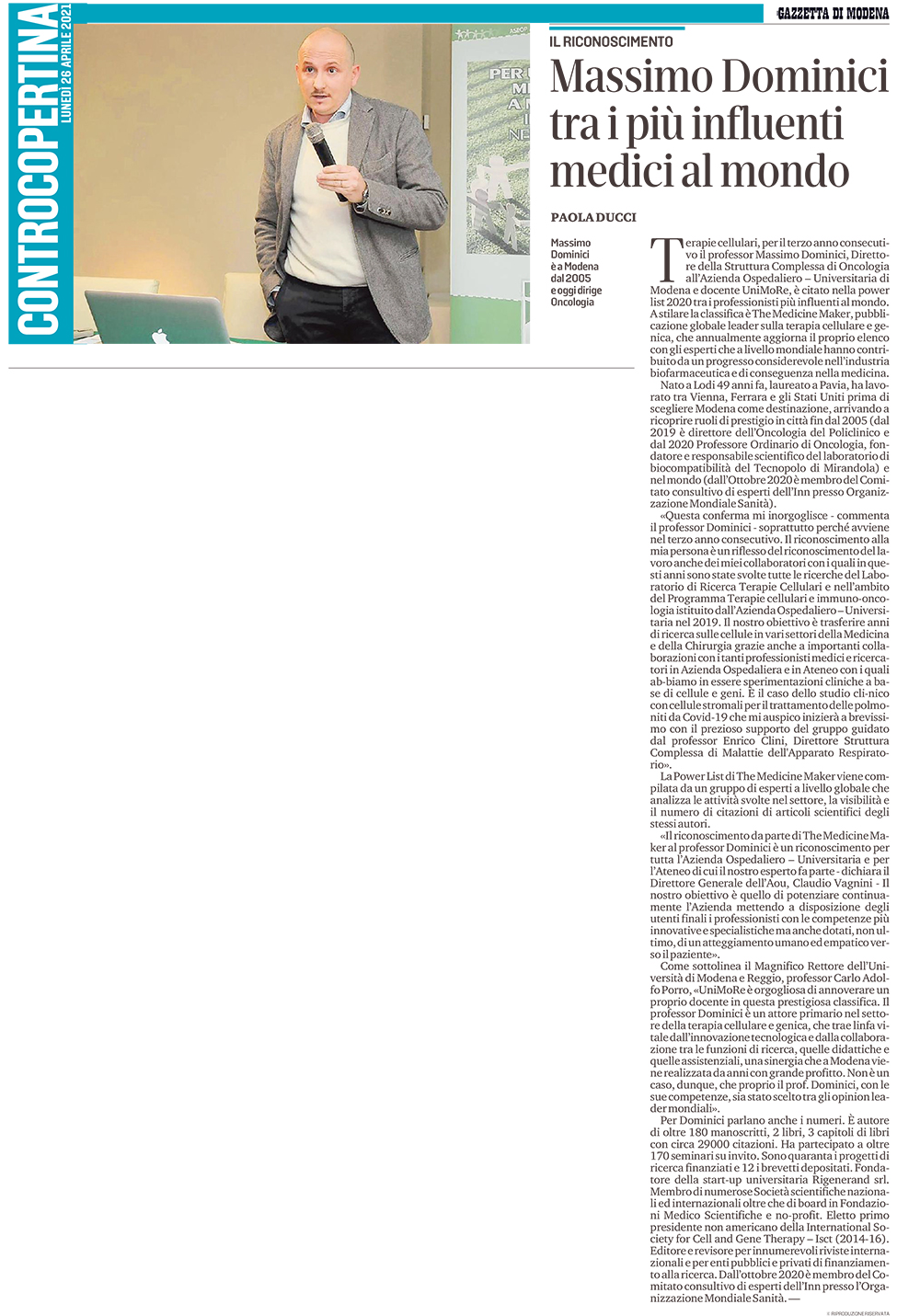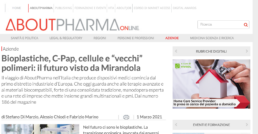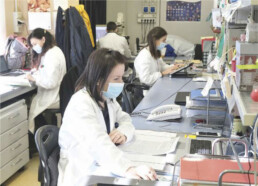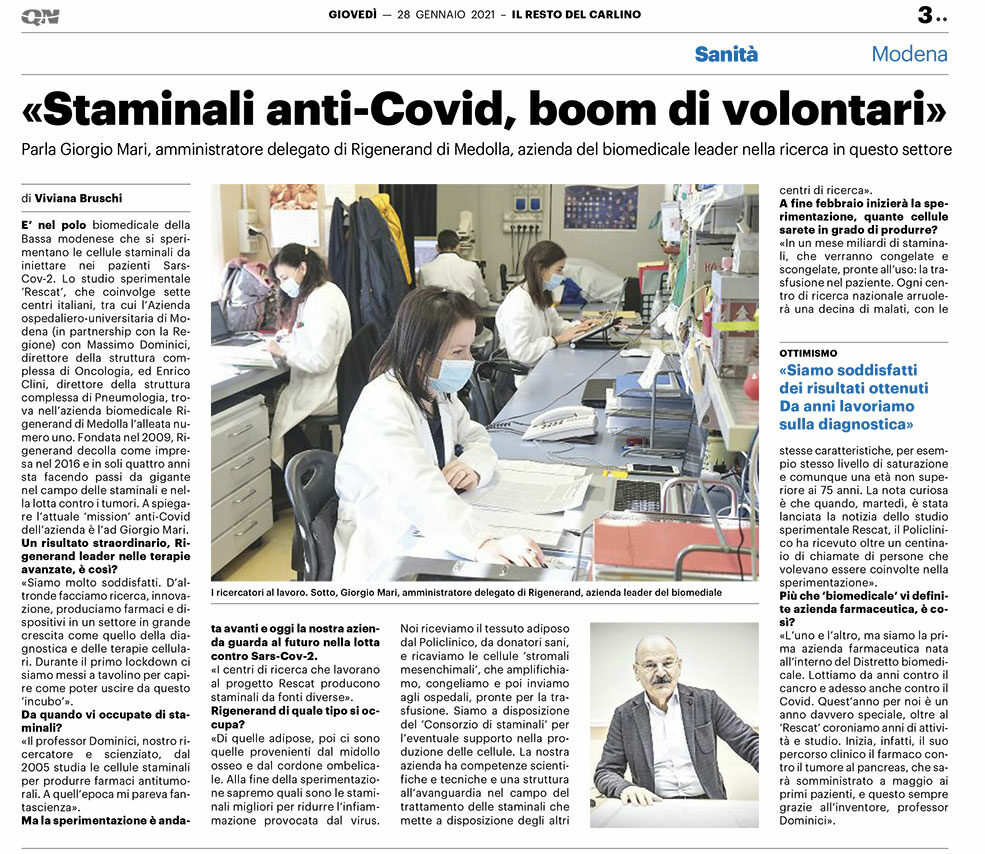Evotec adds cell therapy manufacturing facility with acquisition of Rigenerand
- EVOTEC’S EVOCELLS PLATFORM INTEGRATES INNOVATIVE OFF-THE-SHELF IPSC CELL THERAPY DISCOVERY WITH DEVELOPMENT AND MANUFACTURING
GEN News: 3D Bioreactor Shows Promise for Donor Cell Therapies
A company has developed an iPhone-like bioreactor that may have the potential to aid quality control to validate the efficacy of cell therapies. The flat bioreactor, which has an inner section to hold various cell types, is designed to give a real-time 3D view of the tumor environment.Read moreOctobre 18, 2021 Outsourced Pharma: Cell And Gene Start-Ups Need "CDMO 2.0"
By Louis Garguilo, Chief Editor, Outsourced Pharma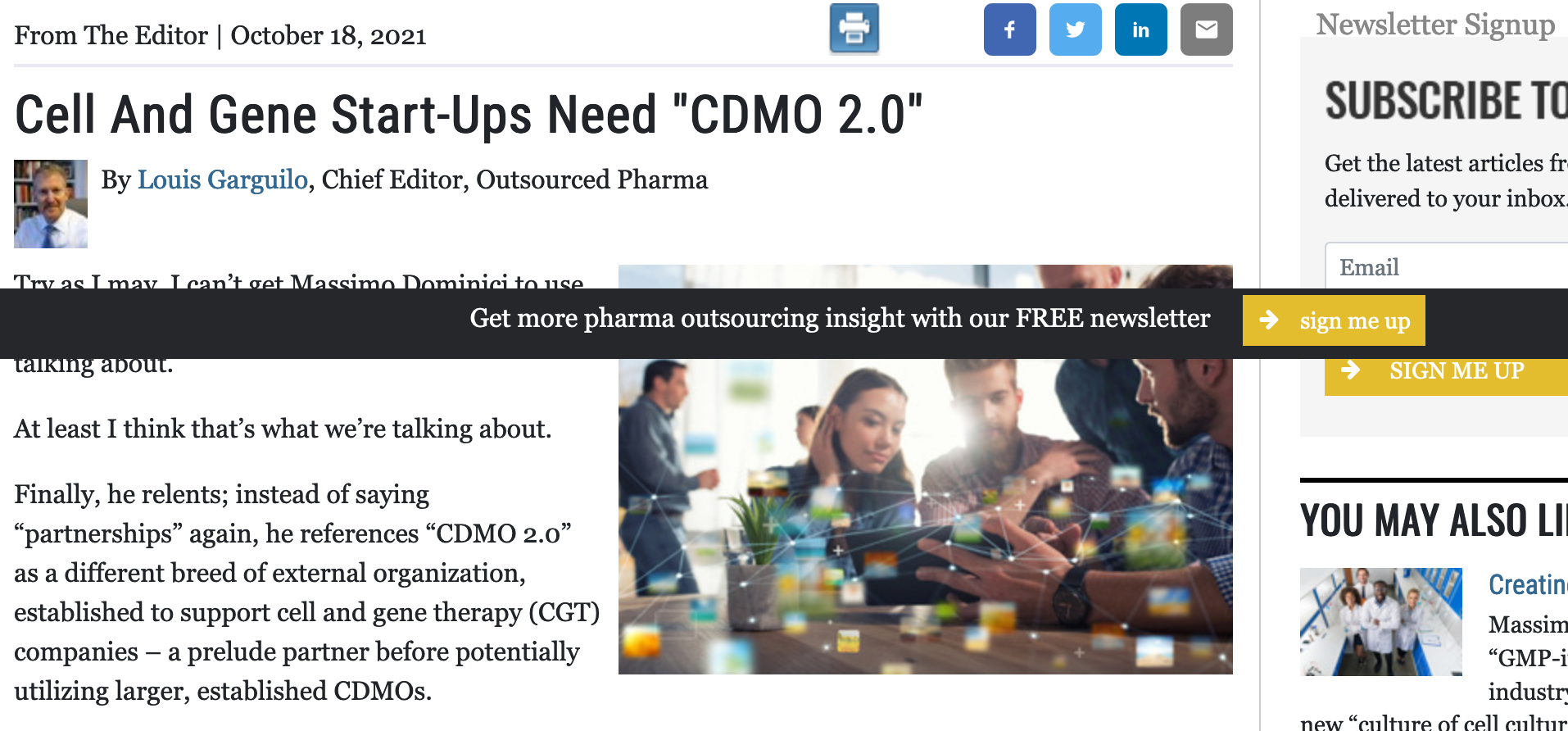 Try as I may, I can’t get Massimo Dominici to use the term “CDMO,” although that’s what we’re talking about.
At least I think that’s what we’re talking about.
Finally, he relents; instead of saying “partnerships” again, he references “CDMO 2.0” as a different breed of external organization, established to support cell and gene therapy (CGT) companies – a prelude partner before potentially utilizing larger, established CDMOs.
Continue reading
Try as I may, I can’t get Massimo Dominici to use the term “CDMO,” although that’s what we’re talking about.
At least I think that’s what we’re talking about.
Finally, he relents; instead of saying “partnerships” again, he references “CDMO 2.0” as a different breed of external organization, established to support cell and gene therapy (CGT) companies – a prelude partner before potentially utilizing larger, established CDMOs.
Continue readingOctober 12, 2021 Outsourced Pharma: Creating The Culture Of Cell Culture
By Louis Garguilo, Chief Editor, Outsourced Pharma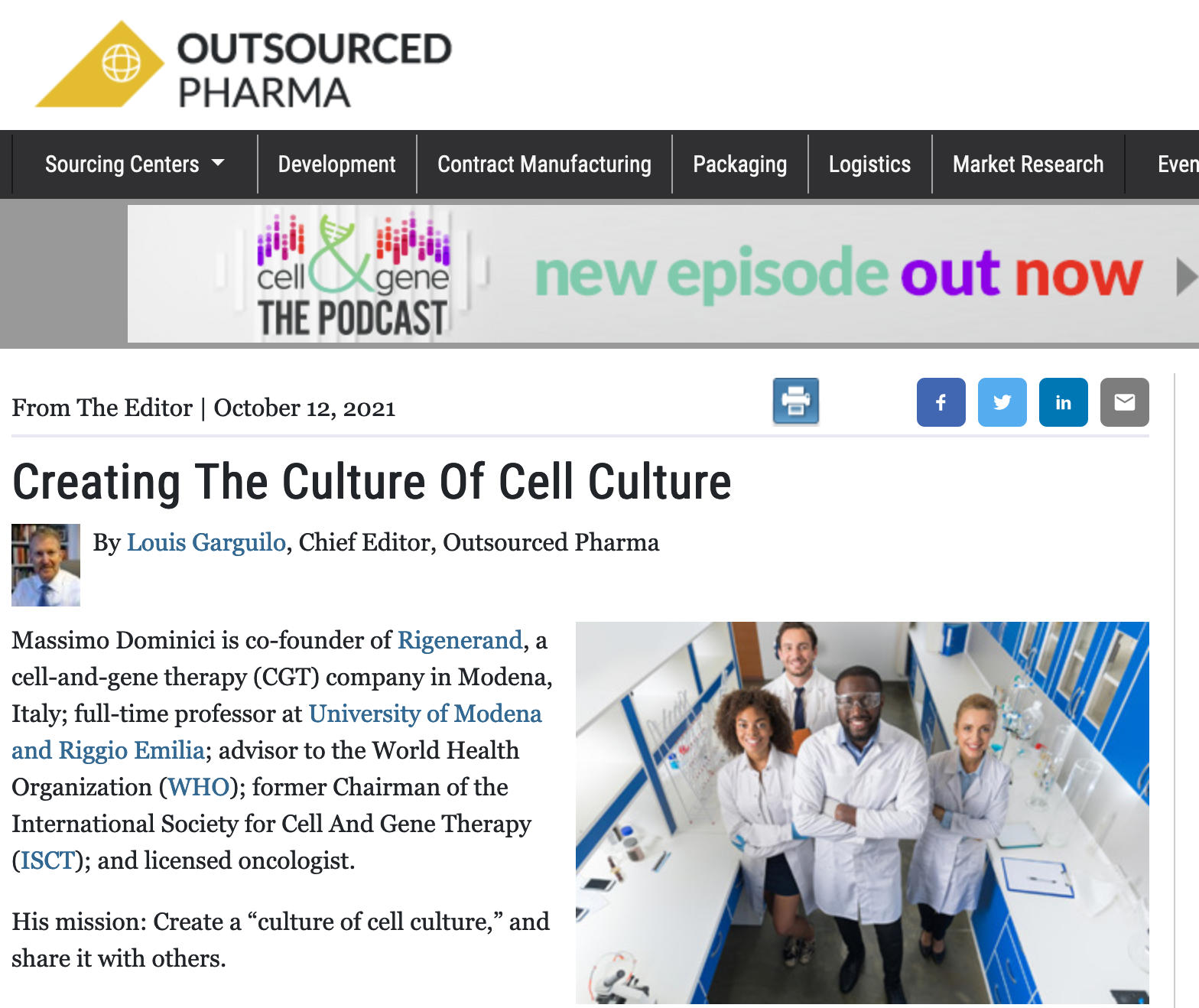 Massimo Dominici is co-founder of Rigenerand, a cell-and-gene therapy (CGT) company in Modena, Italy; full-time professor at University of Modena and Riggio Emilia; advisor to the World Health Organization (WHO); former Chairman of the International Society for Cell And Gene Therapy (ISCT); and licensed oncologist.Read more
Massimo Dominici is co-founder of Rigenerand, a cell-and-gene therapy (CGT) company in Modena, Italy; full-time professor at University of Modena and Riggio Emilia; advisor to the World Health Organization (WHO); former Chairman of the International Society for Cell And Gene Therapy (ISCT); and licensed oncologist.Read more
